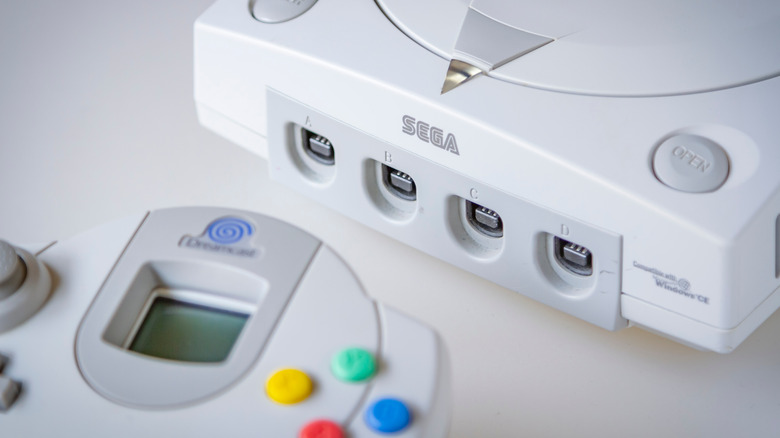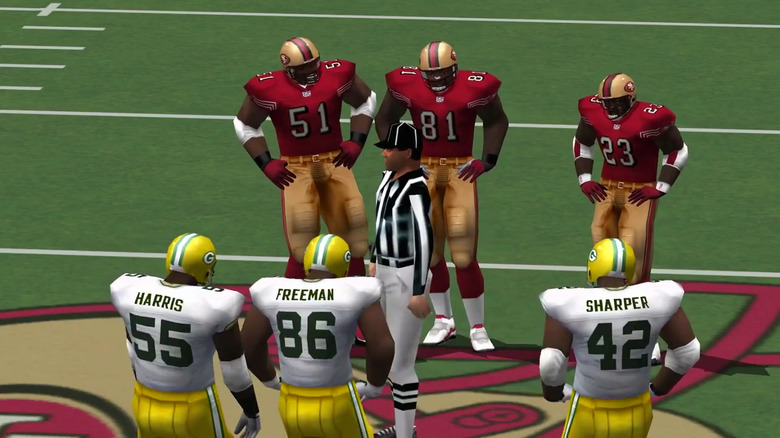How EA Delivered An Early Blow To Sega's Dreamcast
The Sega Dreamcast was faced with a number of obstacles the moment the console hit shelves, and Electronic Arts was one of them. The publisher behind the massively successful "Madden" series opted to not support the console, meaning Dreamcast owners weren't able to play any of its bestselling sports games.
According to an article from SEGAbits, EA wanted sports exclusivity on the console. The late Bernie Stolar, former president and CEO of Sega, was good friends with former EA CEO Larry Probst. Stolar told Probst that he had just acquired Visual Concepts with plans on developing a first-party sports game. For Probst and EA, this was a dealbreaker as the publisher wanted no competition whatsoever on the console.
At first glance, the failure to secure a partnership with EA could have been disastrous. With the big sales figures for "Madden 97," "Madden 98," and "Madden 99," it was clear the football simulation was a console seller. Fortunately for Sega, Visual Concepts exceeded expectations with its own football game.
NFL 2K gave Madden a run for its money
Despite EA's best efforts, it didn't take long for Sega's investment to pay off. After releasing "NFL 2K" in September 1999, Visual Concepts developed the critically acclaimed "NFL 2K1" a year later. Not only was "2K1" superior to its predecessor in nearly every way, but it was also the first football game to offer online play. The title is one of just a handful of near-perfect games to come out on the Dreamcast, and it pulled off the unthinkable by outselling "Madden NFL 2001" in its first few weeks of release.
In retrospect, Sega adapted well to not having EA sports titles on the Dreamcast. The bigger blow to the console's success, argues Dan Whitehead for Eurogamer, was the announcement of the PlayStation 2. The Dreamcast, released in the fall of 1999, was a considerable leap in technology from the original PlayStation, which was several years old at that point. Realizing that Sega would be releasing its console a year earlier, Sony made the bold move to announce the PlayStation 2 in March 1999. Because of this, Whitehead continues, gamers were less eager to buy the Dreamcast knowing the follow-up to the PlayStation was just right around the corner.
Sega needed the "NFL 2K" series to be a hit, and luckily it was. Still, EA's absence was a concerning start for a console that would go on to have only a brief moment in the spotlight.


